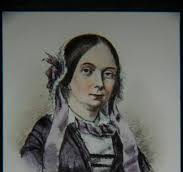
The town of Ladismith in the Western Cape was named for Lady Juana Smith who was the wife of Captain Harry Smith, of the 95th Rifles Regiment.
She was born into an old Spanish noble family and was a descendant of Juan Ponce de León. When she was fourteen she and her sister were orphaned. Badajoz their home town was besieged during the Peninsular War, the siege ended with a bloody but ultimately successful storming by the British and Portuguese troops. The sisters looked for protection and found shelter with some British Army officers whom they found camping outside the city walls. One of these happened to be Captain Harry Smith whom she married a few days later. She did not agree to be sent home to her husband’s family, instead remaining with him for the rest of the war. She travelled on the baggage train and slept in the open. She even rode with the troops. Her beauty and courage endeared her to the troops and officers, including The Duke of Wellington who referred to her as Juanita. She accompanied Sir Harry ( who had been knighted) in all his deployments. Sir Harry served as Governor and high commissioner of the Cape Colony.
She was given a pension of £500 by Parliament on 5 December 1848 in recognition of her husband Sir Harry Smith’s services to the country.
Legend says that it was Lady Smith who introduced the spanspek (cantaloupe) to South Africa in Afrikaans which means ‘Spanish bacon. However, the OED shows that the term ‘Spanish bacon’ has been in use for 250 years.
There is a town Ladysmith in Kwazulu Natal. The name is for the same person but it is differentiated with one letter. The town in the Western Cape is spelled with an i.
